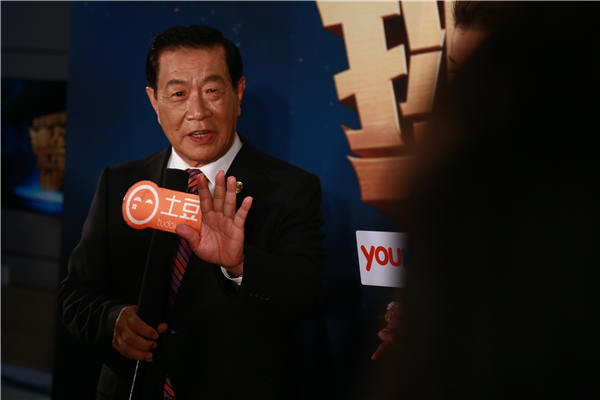
Henry Chang-Yu Lee, the forensic scientist, had his own number tag (2056) at the Connecticut Department of Public Safety. But whenever his colleagues phoned for him, they asked for "007".
In his career of more than 50 years, the Chinese-American investigator has been variously described as "Chinese Holmes", "king of crime scene" and "most feared crime fighter" for the thousands of cases he helped crack, including the O.J. Simpson case and a re-investigation into president John F. Kennedy's assassination.
Not to exaggerate his power of observation, but while looking at an empty table and chairs, he could say how tall the guests were, based on how far the chairs were from the table, whether or not the guests were on good terms, based on the angles of furniture, how many days the room had stayed vacant (he sniffed it) and scores of other clues that would escape others.
"I've done this for such a long time now that you had to have a sense," Lee told China Daily in an interview last month.
Now, his skills are being put to test in a new role.
He stars in a reality TV show, Challenging the Impossible, which is currently being aired by China Central Television every Sunday. Lee is the guest judge who helps to find people who, by defying human limits, do the most outrageous things like tightrope walking between mountains at 3,500 meters above sea level, prying open beer bottles with an opener fastened to a helicopter frame and listening to the sound of currency notes to determine their value.
Aside from satisfying Lee's curiosity of what people are capable of, he says he agreed to appear on the show because it somehow contributes to his dream of a crime-free society.
"My dream for all my life is this, that people are nice to each other and work to build a better society, no crime at all and no use for us policemen," he says.
"But then policemen can only do so much, they cure the symptoms but not the deep cause," Lee says. "If people challenge themselves, test their own limits instead of testing those of others, so much crime can be avoided."
Lee was born in 1938 in East China's Jiangsu province and moved to Taiwan with his family in 1949, thereafter beginning his years as a crime fighter. He didn't realize it would be his life's calling then.
"The police officer's school fed me well and exempted all tuition (fees). It was all that I cared about," he says of his time in Taiwan. His single mother was then raising 13 children.
Lee became a captain at age 25, the youngest in the island's history.
In 1965, he moved to the United States for his graduate studies and then got a PhD in biochemistry. He then went to Connecticut to work and excelled at it right from the start. Many cases he worked on are now textbook examples, like the Helle Crafts Woodchipper case, in which Lee's team outsmarted a CIA official who had tricked a polygraph test twice, by finding evidence against him from the scene of the crime.
"My biggest achievement from the many years of work is ... making forensic science the most reliable way of crime investigation, upgrading its significance a notch," Lee says. "In the US as in China, it was inquisition that made the case before forensics came along."
Lee would attribute his feat mostly to science, but he says his Chinese personality also helped.
"I have typical Chinese characteristics, I'm nice to people and very patient," Lee says, adding that he "likes to find things out down to the very bottom".
Although known for high-profile cases, Lee says the cases that moved him most were often those involving innocent elderly victims or cases that had gone cold.
"Dead men can't talk - with forensic science, we speak for them," he says.
The families of victims of crime hang onto such cases for years in the hopes of finding justice.
"Cracking those sometimes means fulfilling one's lifelong wishes."
He is now the chair professor at University of New Haven's Forensic Research Training Center, which he founded in 1998. He works 16 hours a day and while recused from active crime cases, he writes, teaches, advises and cracks cold cases with his team.
Lee lives in Connecticut with his wife Margaret. He comes to China often for the TV show as well as for lectures and training sessions with police. In 1999, the central government awarded him the Friendship Award, the top China honor for foreigners who substantially contribute to the country's advancement in various fields.
"Dr Lee gives you a sense of justice and steadiness," says Wakin Chau, a Chinese singer and fellow judge on the CCTV show.





